Cambodia (2021 Deadline)
Understand the management and support for the Anlong Svay Protected Area Community
PI: Samnang Nguon (sam@rua.edu.kh), Ecosystem Services and Land Use Research Center, Royal University of Agriculture
Project Dates: May 2022 – June 2023
Project Overview
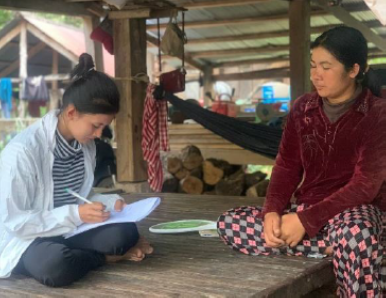 | | PEER team conducting community interviews. Photo credit Dr. Nguon |
The Anlong Svay Protected Area Community is located in the Kbal Tek Commune in the Kampong Chhnang Province of the Phnom Aural Wildlife Sanctuary. Created by the Ministry of Environment in 2003, the community covers more than 1200 hectares of semi-dense and bamboo forest and includes four villages. Residents of the community mainly rely on growing rice (through both the paddy and intercropped chamkar production systems), raising livestock, and harvesting non-timber forest products.
The PI and his team carried out a needs assessment to identify the main priorities for the community to improve its management, focusing on a SWOT (Strengths, Weaknesses, Opportunities, and Threats) analysis. The team sought to help the community identify the main challenges and highest priorities for improving their community, as well as provide a training base for the community. The researchers undertook this assessment through interviewing residents, key persons within the communities, and tourists in the area.
Final Summary of Project Activities
The PEER team and student interns first visited the Anlong Svay community to meet with local residents, present the project plan, and interview key stakeholders, including the commune chief, community heads, and other important community members. With these experiences in mind, the team reviewed the relevant literature and developed the research questionnaires and methodologies for the field surveys. The three student interns were trained on formulating, testing, and using questionnaires, as well as data entry. They, along with the rest of the project team, undertook an initial round of in-depth interviews with the community members and tourists, then refined the questionnaires for a second round of interviews. The researchers also held a focus group discussion and designed another questionnaire to interview community members to understand their perceptions of community management.
The PEER team presented their initial findings to the local communities. From these findings, they also developed and hosted three trainings, including on home gardening, production of compost fertilizer and environmentally friendly alternatives to pesticides, and financial and community management. They also installed 11 trash bins for waste management in the community and encouraged ecotourism development in the area.
The project supported the three undergraduate interns in finishing their theses and degrees. Thanks to the solid foundation built through the PEER project, the team received six additional grants worth a total of more than $120,000 to support their work.
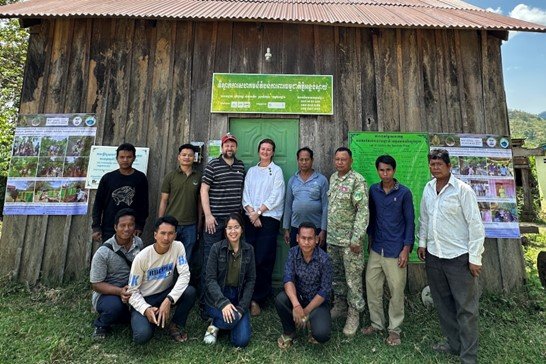 | 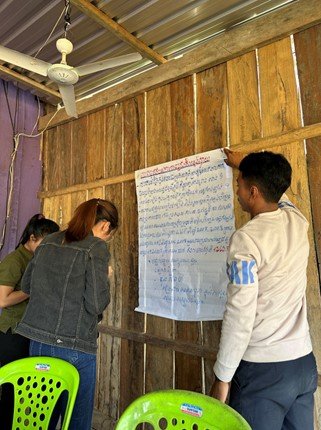 | | Staff from USAID (Aaron Burr) and NAS (Lina Stankute Alexander) visit PEER PI Samnang Nguon and his team, who have been working with the Phnom Anlong Svay Community Protected Area's local community. February 2023, Cambodia | Preparing for presentation |
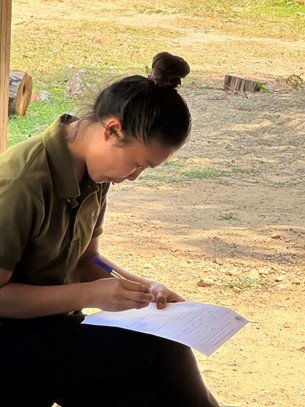 | 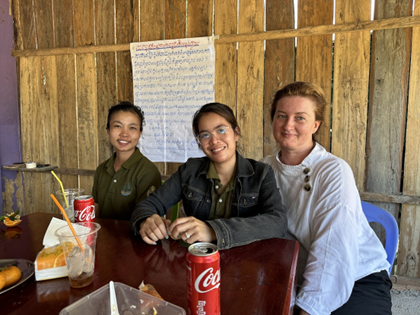 | 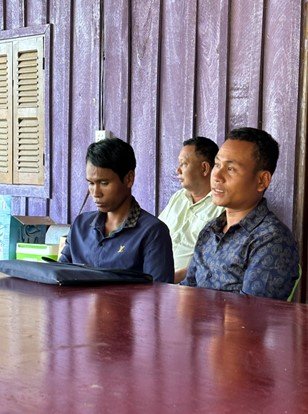 | | PEER team members | PEER team students and NAS staff | Community leaders talk about their needs and goals |
| 








